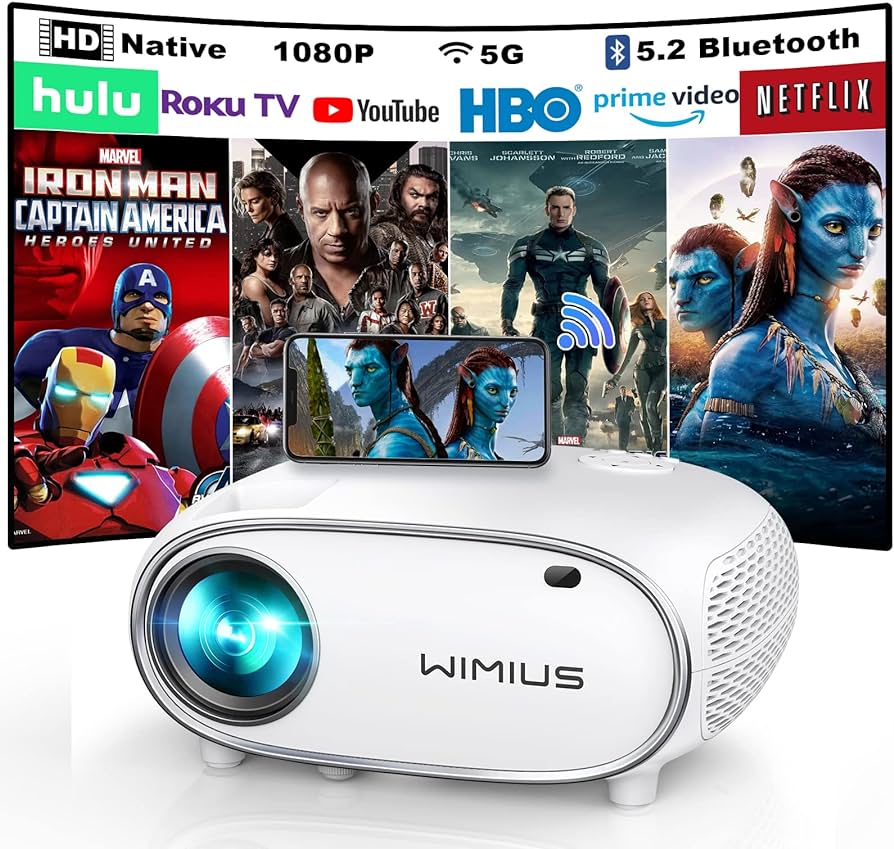Are Wired Controllers Better Than Wireless
Wired controllers have been around for a long time and have been the go-to choice for many gamers. One of the biggest advantages of wired controllers is their reliability. With a wired connection, you don’t have to worry about any interference or lag, ensuring a smooth and responsive gaming experience. Plus, you never have to worry about your battery dying in the middle of an intense gaming session!
On the other hand, wireless controllers offer a level of convenience that wired controllers can’t match. No more tangled cords or limited range of movement – you can enjoy gaming from the comfort of your couch without any restrictions. Wireless controllers have come a long way in terms of technology, with improved latency and connectivity options. However, they do have their drawbacks, such as the need to charge the battery and the possibility of signal interference.
Now that we’ve explored the basics of wired and wireless controllers, it’s time to weigh the pros and cons and consider your gaming preferences. Each has its own advantages and limitations, and the decision ultimately comes down to personal preference. So, whether you choose the tried-and-true reliability of wired controllers or the convenience of wireless ones, make sure to pick the option that enhances your gaming experience. Let’s dive deeper into the wired vs. wireless discussion and unravel the intricacies of each type of controller.
When it comes to gaming controllers, the choice between wired and wireless depends on your preferences. Wired controllers offer a reliable connection with zero input lag, making them ideal for competitive gaming. On the other hand, wireless controllers provide more freedom of movement and convenience, but may have slight input delay. Consider your gaming needs and preferences to determine which option suits you best.


Are Wired Controllers Better Than Wireless?
When it comes to gaming, the choice of controller can significantly impact the overall experience. One common debate among gamers is whether wired controllers are better than wireless ones. Both options have their advantages and drawbacks, and the decision ultimately comes down to personal preference and gaming needs. In this article, we will delve into the details of wired and wireless controllers, exploring their pros and cons, as well as providing insights to help you make an informed decision.
Wired Controllers: Reliability and Stability
Wired controllers have long been the go-to choice for professional gamers and enthusiasts alike. One of the key advantages of wired controllers is their reliability and stability. By directly connecting to the gaming console or PC, wired controllers eliminate the risk of signal interference or connectivity issues that can plague wireless controllers. This reliable connection ensures precise and instant button responses, crucial for competitive gaming and fast-paced action.
Another advantage of wired controllers is their uninterrupted power supply. Since they draw power directly from the gaming device, you don’t need to worry about batteries running out mid-game. This can be a significant advantage during intense gaming sessions or tournaments where every second counts.
Moreover, wired controllers tend to have lower input lag compared to their wireless counterparts. With minimal delay between pressing a button and the action occurring on the screen, players can enjoy a more responsive and immersive gaming experience. This lower input lag can be particularly advantageous in genres that require quick reflexes, such as first-person shooters or fighting games.
Wireless Controllers: Freedom and Convenience
While wired controllers offer reliability and stability, wireless controllers provide the freedom and convenience of untethered gameplay. The absence of physical cords allows gamers to sit or move around more comfortably while playing, without worrying about the controller getting tangled or pulling out cables accidentally.
Wireless controllers offer greater flexibility when it comes to positioning and distance from the gaming console or PC. This is especially beneficial for gaming setups where the display is far from the gaming device, or for gamers who prefer playing on the couch rather than at a desk. The freedom to sit back and relax while gaming can contribute to a more enjoyable and immersive experience.
Additionally, wireless controllers often come with long battery life, allowing for extended gaming sessions without the need to recharge frequently. Most wireless controllers use rechargeable batteries or have the option of using standard AA batteries, making it convenient to swap batteries if needed. This eliminates the hassle of dealing with tangled cords or being restricted by their length.
Wired Controllers vs. Wireless Controllers: A Closer Look
Now that we have explored the individual benefits of wired and wireless controllers, let’s compare them side by side to help you understand the key differences and make an informed decision.
Connection and Reliability
One of the significant advantages of wired controllers is their reliable connection. There is no need to worry about signal interference or connectivity issues, ensuring precise and instant button responses. Wireless controllers, on the other hand, may occasionally experience signal drops or latency due to factors like distance from the device or wireless interference.
However, modern wireless controllers have significantly improved in terms of connection reliability, with advanced wireless technologies such as Bluetooth ensuring stable connections with minimal latency. It’s important to consider the quality and reliability of the wireless technology used in the controller before making a decision.
Input Lag
Low input lag is crucial for a smooth gaming experience, especially in competitive gaming. Wired controllers typically have lower input lag compared to wireless ones because they bypass the need for wireless transmission. However, the input lag in wireless controllers has significantly reduced in recent years, and many high-quality wireless controllers offer input lag comparable to their wired counterparts.
It’s worth noting that input lag can also depend on the performance of the gaming device, the display, and other factors. When considering input lag, it’s essential to ensure that all components of your gaming setup are optimized for minimal latency.
Freedom of Movement
Wireless controllers offer the advantage of freedom of movement, allowing players to sit or move around more comfortably without being restricted by cords. This can be particularly beneficial for gamers who prefer playing on the couch or who have gaming setups where the display is far from the gaming device.
However, wired controllers provide a more secure and stable connection, without the risk of signal drops or interference. They are ideal for gamers who prioritize reliability and need precise button responses without any lag.
Convenience and Battery Life
When it comes to convenience, wireless controllers have the upper hand. They eliminate the hassle of dealing with tangled cords, the need for cable management, and the risk of accidental disconnections. Wireless controllers often come with long battery life, allowing for extended gaming sessions without frequent recharging.
Wired controllers, on the other hand, draw power directly from the gaming device, eliminating the need for batteries or frequent recharging. This can be advantageous during intense gaming sessions or tournaments, where an uninterrupted power supply is crucial.
It’s important to consider your gaming habits and preferences when deciding between wired and wireless controllers. If you frequently game for long durations and don’t want to deal with battery management, a wired controller might be the better option. Conversely, if freedom of movement and convenience are significant factors for you, a wireless controller may be the more suitable choice.
Final Thoughts
When it comes to choosing between wired and wireless controllers, there isn’t a definitive answer. The decision boils down to personal preference and gaming needs. If you value stability, reliability, and minimal input lag, a wired controller may be the better option for you. On the other hand, if freedom of movement, convenience, and extended battery life are more important, a wireless controller might be the way to go.
Ultimately, both wired and wireless controllers have their advantages and drawbacks. The key is to assess your gaming requirements, consider the factors mentioned in this article, and choose the controller that best suits your needs. Whether wired or wireless, the most important aspect is to enjoy your gaming experience to the fullest.
Key Takeaways: Are wired controllers better than wireless
- Wired controllers offer more reliable and stable connections.
- Wireless controllers provide more freedom of movement.
- Wired controllers have lower input lag, resulting in faster response times.
- Wireless controllers may experience interference from other devices.
- Wired controllers eliminate the need for batteries or charging.
Frequently Asked Questions
When it comes to gaming, one of the choices gamers have to make is whether to use a wired controller or a wireless one. Here are some common questions about wired and wireless controllers and their differences.
Why do some gamers prefer wired controllers over wireless ones?
Several gamers prefer wired controllers for a few reasons. Firstly, wired controllers have a more direct connection to the gaming console, resulting in minimal input lag. This means that the actions you perform on the controller are quickly translated onto the screen, providing a more responsive gaming experience. Secondly, wired controllers do not require batteries or charging, ensuring that they are always ready for use without any downtime. Lastly, some gamers find the feel of a wired controller more comfortable and reliable.
Ultimately, the preference for wired controllers is subjective and can vary from gamer to gamer based on individual needs and preferences.
What are the advantages of using wireless controllers?
Wireless controllers offer increased freedom of movement as they are not tethered to the gaming console by a cord. This allows gamers to sit farther away from their screens or move around more freely, enhancing the overall gaming experience. Additionally, wireless controllers eliminate the hassle of dealing with cords, making it easier to set up and pack away gaming equipment. Moreover, advancements in technology have significantly reduced the input lag in wireless controllers, making it a viable option for many gamers.
While there are advantages to using wireless controllers, it’s important to consider factors such as battery life and potential interference from other devices that may affect the effectiveness and performance of the controller.
Are wired controllers more reliable than wireless controllers?
Reliability can depend on various factors, including personal preferences and gaming setups. Wired controllers typically have a more stable connection, as they are directly linked to the gaming console through a cable. This can reduce the chances of signal interference or disruption during gameplay. However, with advancements in wireless technology, many wireless controllers now have reliable connections with minimal input lag, making them a reliable choice for most gamers.
Ultimately, it is essential to consider your specific gaming needs and preferences when determining the reliability of controllers, as different gamers may have different experiences with wired and wireless options.
Do wired controllers offer better response times compared to wireless controllers?
Wired controllers generally offer better response times compared to wireless controllers due to the more direct connection they have with the gaming console. The absence of wireless signals being transmitted and received allows for quicker communication between the controller and the console. This reduced response time results in faster and more precise input recognition, providing a competitive edge in games that require quick reflexes.
However, it’s worth noting that advancements in technology have significantly decreased the input lag in wireless controllers, making the difference in response times less pronounced. Many wireless controllers now offer response times that are nearly on par with wired controllers, making them suitable for most gaming situations.
Are wired controllers more suitable for competitive gaming?
Wired controllers are often considered more suitable for competitive gaming due to their minimal input lag, faster response times, and stable connection. The direct and uninterrupted link between the wired controller and the console can provide a slight advantage in competitive gameplay, where split-second decisions and precise control can make a difference. Professional gamers, in particular, may prefer wired controllers for their reliability and responsiveness.
That being said, wireless controllers have come a long way in terms of reducing input lag and improving response times, making them a viable option for competitive gaming as well. Ultimately, the choice between wired and wireless controllers for competitive gaming comes down to personal preference and the specific requirements of the game being played.
Wired vs. Wireless Controllers
Summary:
Wired controllers have some advantages over wireless ones, like lower input lag and no battery issues. They offer a more reliable and consistent gaming experience. However, wireless controllers provide freedom of movement and are more convenient. They are a good choice if you don’t mind the occasional signal interference or latency. In the end, it comes down to personal preference and the specific needs of the gamer.
Key Points:
– Wired controllers have less input lag and no battery problems.
– Wireless controllers allow freedom of movement but may have signal interference.
– Personal preference and individual gaming needs determine the best choice for each person.




